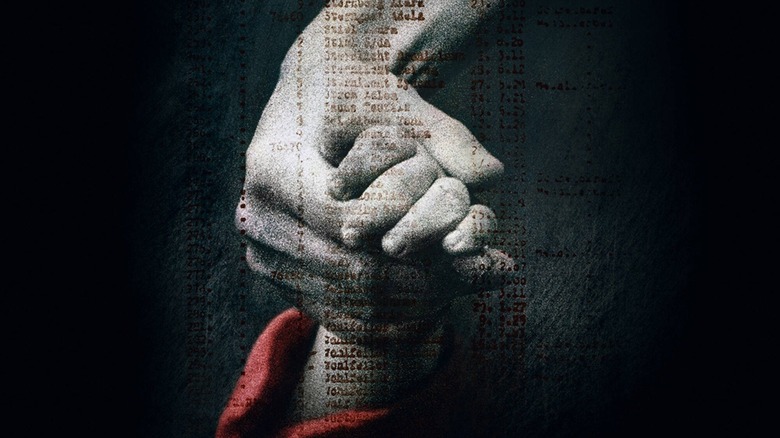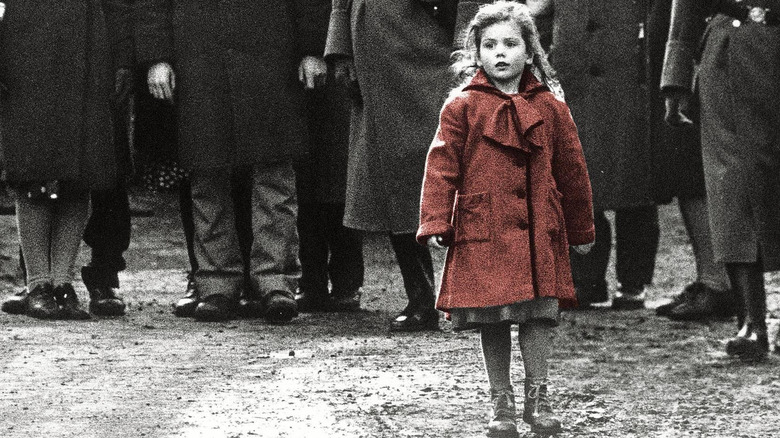Why Spielberg Refused To Take A Salary For Schindler's List
The concept of the Hollywood blockbuster and Steven Spielberg are inherently intertwined at this point in the public consciousness. Spielberg always is willing to take on intimidating projects that take an exceptional eye and strong technical skill, whether it be a film about a killer shark or a stranded alien trying to make his way back home. However, even at the peak of his legend status in the early 1990s, there was one film he put off making for years: "Schindler's List." In a 2018 interview with Lester Holt, it was clear that "Schindler's List" still holds great importance to Spielberg, over two decades after completing the project.
However, did you know that despite the success of the film, including a win for Best Picture at the Oscars, Spielberg didn't take a salary for the film?
A Respect for History
The film was a passion project for Spielberg, one he put off making for years, not feeling "mature" or ready enough to make the film. He tried to pass it off to several other directors over the years, including Roman Polanski, Sydney Pollack, and even had Martin Scorsese on board to direct before trading "Cape Fear" with him. We can only speculate that his hesitation was tied to perhaps feeling insecure about tackling a film rooted in grim reality when most of his success at that point was with science-fiction blockbusters. When he was finally ready to make the film, Spielberg was uncomfortable with the idea of taking a salary for "Schindler's List" due to the film's subject matter.
In an interview on "Today" with Katie Couric, Spielberg explained that he considered it "blood money."
Let's call it what it is. I didn't take a single dollar from the profits I received from 'Schindler's List' because I did consider it blood money. When I first decided to make 'Schindler's List" I said, if this movie makes any profit, it can't go to me or my family, it has to go out into the world.
His share of profits for the film indeed did go out into the world in the form of the Shoah Foundation. In 1994, Spielberg spearheaded the foundation with the goal of collecting visual and audio histories and testimonies from survivors of the Holocaust and other genocides. The Shoah Foundation states on its website that its mission "is to develop empathy, understanding and respect through testimony." It's a remarkable collection containing over 55,000 video testimonies and other artifacts.
Spielberg further explained to Couric the importance of collection.
I hope they'll be used in schools, in libraries and in Holocaust museums and other museums, repositories all over the world. I hope it'll be used to educate young people as to the ultimate dangers of how far hate can take us ... this is a living example and there are still witnesses that are alive that survived it.
In a way, having the emotional intelligence to make that sort of decision, when he certainly did not have to, may be exactly the kind of maturity Spielberg was looking to find within himself before he could take the helm of "Schindler's List." It's a strong example of what it means to bring a creative vision to life with a real appreciation for what art can do for the world.

